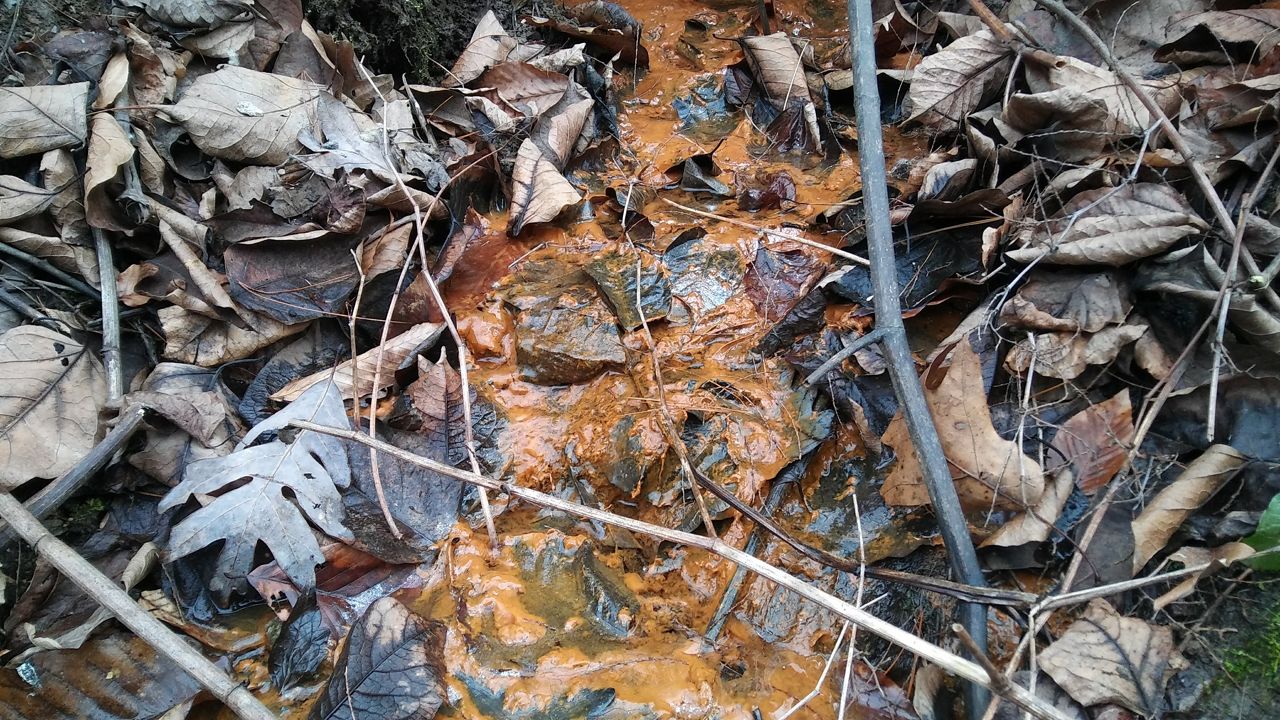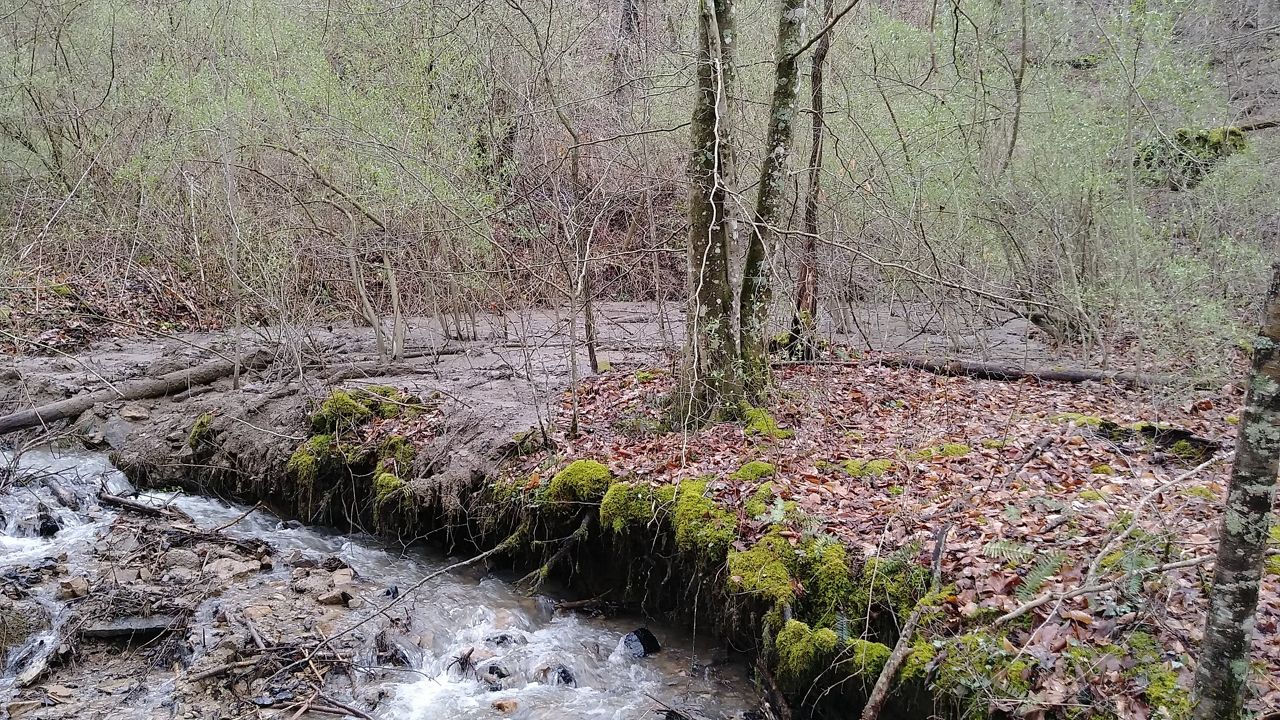LEXINGTON, Ky. — The U.S. House Committee on Natural Resources heard from several witnesses, including one Eastern Kentucky resident, during a recent hearing discussing important coal-related legislation, such as a bill that would shore up the mine cleanup system and another that would ensure abandoned mine land funding can be used for long-term acid mine drainage treatment facilities.
What You Need To Know
- Pieces of legislation aimed at reclamation, cleanup
- Eastern Kentucky woman says projects are overdue
- Rep. Yarmuth says people of Eastern Kentucky deserve better
- Contaminated well water rampant in parts of Appalachia
The committee heard from Elaine Tanner, a resident of Letcher County and program director of Friends for Environmental Justice, as well as Erin Savage, senior program manager at environmental advocacy organization Appalachian Voices, among others.
One bill under discussion was the recently introduced Restore Employment in Natural and Environmental Work Conservation Corps Act, or RENEW Act, which addresses the crisis in the mine reclamation system established by the Surface Mining Control and Reclamation Act of 1977, or SMCRA. The RENEW Act, sponsored by Rep. Conor Lamb, D-Pa., is an effort to ensure the burden of cleanup is not shifted to taxpayers and local communities.
Another bill, the Safeguarding Treatment for the Restoration of Ecosystems from Abandoned Mines Act, or STREAM Act, would ensure some of the money dedicated to cleaning up pre-SMCRA abandoned mine lands in the Bipartisan Infrastructure Law could be set aside in interest-bearing accounts to pay for the long-term treatment that will be required.
Tanner, who lives with her partner, Jimmy Hall Sr., just outside the small coal community of Deane, Ky., said she is an “affected citizen” living at “ground zero” in a remote, mined-out community.
“I had been working across this country with many coalitions and alliances around impact issues of fossil fuel extraction for many years,” she said. “My partner bought his family’s property, and our lives became much more focused on that mountain. This helped bring our legacy of working on mining issues to the forefront and made it personal."
FAILURE TO ACT
Tanner said Hall, who has been her partner for more than 30 years, grew up on the mountain property he purchased from his uncle in 2004. The couple retired and moved there permanently in 2019.
“It was clear the mountain’s headwaters had water-quality issues and damage had been done to our aquifer,” she said. "We were fortunate to find many like-minded residents living in these mountains who also wanted to address the same issues Jimmy and I had been fighting on our own for several years.”

Tanner said she and Hall plan to spend the rest of their lives and be buried on their mountain property, which is a place his family cared for the mountain, streams and land for generations.
“Little did we know that to be here we would have to work so hard to ensure the mountain will sustain the future we have planned,” she said. “We knew we were headed for a different lifestyle, but we were not prepared for the experiences of living here on the mountain at this point in life in our late 60s and early 70s. What we have uncovered in these past few years has taken us down a path that even our ancestors would not believe.”
Tanner said she and Hall had no choice but to live with the permit agreement Hall’s uncle made with Consol Coal to mine 135 of the family’s 245 acres. What they could not live with, she said, is Consol Coal neglecting to complete the high-quality reclamation of their land, much of which she said still looks like a blast zone.
“At one point, we discovered the coal company claimed ownership to the property, having falsified state permit documents so they could change the mining plan and escape properly reclaiming the disturbance left behind,” she said. “We discovered this while trying to address the lack of reclamation through Kentucky’s mining agency administrative court. The original mining permit mentions reclamation plans that mysteriously changed in later versions. The original plan promised 300 trees per acre, but was then changed without proper notification from forest reclamation to ‘fish and wildlife habitat,’ which is essentially just hydroseeding with grasses. We lost three wells and neighbors had lost wells because of the depletion of groundwater, which was likely a result of blasting and fracturing underground rock layers. How easy it was for them to neglect to reclaim the mine as outlined in the reclamation plan, and cannot address their effects on our drinking water, and the state mining agency let them get away with it.”
DRINKING WATER
Tanner said she and Hall had their three water wells tested around 2011 and were told by the Kentucky Division of Water its only safe use was to flush their toilets.
“Then, the Kentucky Division of Mine Reclamation and Enforcement claimed there was not enough evidence to prove that mining had caused the groundwater pollution,” she said. “The Division of Water told us not to touch the water or use it for cooking or bathing, as it was toxic, having been contaminated by arsenic. The state agencies did not proactively reach out to other nearby residents who also used well water, even though it seemed obvious to me that their wells might also be contaminated.”
Tanner said children were having seizures and young women were experiencing gallbladder attacks at an alarming rate, so she and Hall went door-to-door to investigate who had water concerns.
“It seemed like every other house had experienced cancer of some sort,” she said. “These are not isolated issues. This is life in a mined-out community. It is estimated we still have 50% of the homes here in Letcher County relying on well water. We need clean drinking water and long-term treatment of our polluted streams.”
TRACKING THE FUNDING
Tanner said, through her own research, it was discovered that Kentucky AML funds allocated to pay for water lines in her community were spent elsewhere.
“Speaking from experience, knowing these new federally funded projects are sending available funds to local county agencies, we must demand transparency,” she said. “Distribution of these funds holds a responsibility to the point there should be consequences should they cannot do so. When dealing with Abandoned Mine Lands, misuse of funds could cause states losing the right to administer mining programs under SMCRA. In my experience dealing with the regulatory process, the system has failed us as community members. For the past two decades, we have tried to find some sort of solution to the misuse of power given to mining inspectors and to the Kentucky Energy and Environment Cabinet.”
Tanner said this “misuse of power” has created a multitude of problems stemming from failed regulations and failed enforcement by the Kentucky Division of Mine Reclamation and Enforcement.
“Consol Coal walked away leaving high walls and boulders falling down the slope towards our houses,” she said. “Mudslides are a seasonal occurrence here.”
According to the federal AML inventory, it will cost at least $21.2 million to remediate the 104 AML sites that have been identified and inventoried in Letcher County.
“The need to support this bipartisan bill under the Stream Savers Act is the way to continue collecting just a part of the funds needed to protect our communities from this legacy mining as these old mines continue to fill up with water and dump havoc on our people and these mountains we call home,” Tanner said.
LEGISLATION
Savage said she is grateful for Rep. Lamb and his staff for writing the ‘‘RENEW Act.” The Act seeks to address the shortfall between currently available funds designated for the reclamation of coal mines abandoned under SMCRA, and the actual expected cost of completing this reclamation.
The bill would provide $385 million per year to establish a grant program for states to apply for funding to cover the reclamation bond shortfall for coal mines that were permitted under SMCRA and subsequently forfeited such that the regulatory agency is now responsible for completing reclamation.
“In other words, funds are not available to mine operators, or for mines where an operating coal company is still responsible for reclamation,” Savage said. “The fund is distinct from funding for abandoned mine land reclamation, which only applies to coal mines abandoned prior to 1977.”
Savage said the bill would also take steps to ensure the bonding program issues that have led to shortfalls are not perpetuated because agencies would need to show active steps to improve reclamation bonding programs and to recover reclamation costs from responsible parties. The bill would also require state programs to aggregate reclamation projects to improve economies of scale, to commit to paying prevailing wages, and to actively engage the community in the design and oversight of reclamation projects.
“The Coal Cleanup Taxpayer Protection Act (HR 2505) would strengthen coal reclamation bonding by disallowing the use of highly risky self-bonds,” Savage said. “Self-bonds are the least secure form of bond, as the coal company does not provide any actual money, but just gives its word to the regulatory agency that it will provide the bond money in the event of a mine forfeiture.”
United States Rep. John Yarmuth, D-Louisville, is sponsoring the Appalachian Communities Health Emergency Act, or ACHE Act.
“This legislation is simple,” he said. “It would require that a federal study of the health effects on the surrounding communities of mountaintop removal mining sites is conducted before new mining permits are issued. It’s a bill I worked closely on for nearly a decade with our former colleague and Harlan County native, Congresswoman Louise Slaughter. It's not hard to see why this study is so important.”
Yarmuth testified before the House Natural Resources Committee during the hearing. He held up a bottle containing discolored, sediment-laden water.
“None of us would drink this,” he said. “If you lived in a home where this substance came from the faucet, you wouldn’t cook with it. You wouldn’t bathe your kids in it. I say ‘substance’ because it seems wrong to describe this as water. It’s not only orange and cloudy, if I leave it on the table here for a minute, you’ll see it separate into layers. And yet this is what comes out of the faucets in homes in parts of Eastern Kentucky. This is the reality of what countless families who reside near mountaintop removal sites in Appalachia are forced to live with. This bottle was given to me years ago by the Urias family of Pike County, and this is straight from the well on their property — the third well they tapped after powerful mining blasts shifted and either dried up or forced their first two wells to fail. Chemicals from nearby blast sites had leached into the water table, resulting in arsenic levels more than 130 times the level deemed safe by the EPA.”
Yarmuth said his bill benefits the Appalachian region of Kentucky, a place with higher rates of cancer than the national average, more instances of asthma, COPD, countless other respiratory illnesses, birth defects and more.
“You name it, these communities are dealing with it,” he said. “And while I think the connection is clear, the unfortunate reality is that we’ve never conducted a federally funded health study in these communities. Permit after permit has been issued allowing coal companies to blast apart the mountains these families live among, but they’ve never looked into what happens when those materials are released into the air, or into nearby streams and rivers, or tumble downhill seeping into the ground until it reaches the sources of water these families rely on. I want to be honest: If it were up to me personally, I’d ban mountaintop removal mining entirely. I believe it is a destructive practice, producing smaller amounts of coal, polluting our waterways, and leaving behind a barren earth that is almost unusable.”



